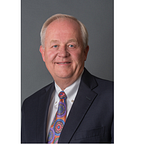Misleading Claims Link Cheese to Cancer
A few years ago there was a movement in California to put a cancer warning on coffee. Imagine your morning cup of joe with skull and crossbones? Before that, there was an attempt to slap cancer warnings on breakfast cereal. And before that, it was rice — which happens to be the most consumed food in the entire world. And now, activist groups looking to promote plant-based diets and destroy the dairy industry and the livelihoods of dairy farmers everywhere have targeted cheese with their unproven, misleading claims that cheese is linked to breast cancer. Of course, they chose National Breast Cancer Awareness Month — a time when we should be focused on raising awareness about legitimate prevention and causation — for this scaremongering campaign.
Perhaps Halloween would be a better choice, though, considering this is one big trick played on the public.
This group has even petitioned the Food and Drug Administration (FDA) to put a cancer warning on cheese — CHEESE! — and cajoled some media into covering their specious claims under the guise of public service by trotting out so-called medical professionals to support their positions. The problem is, the legitimate medical community and the legitimate health research community do not support their position nor do they put credence in their conclusions.
That’s because no research has found causation between eating cheese of any kind and occurrence of cancer, including breast cancer. In fact, just the opposite is true — dairy consumption is independently associated with a decreased risk of several major chronic diseases. Cheese itself is a nutritious food and part of a healthy dietary pattern. Moreover, the inclusion of dairy regardless of the fat level as a separate food group in someone’s dietary pattern makes that person more likely to consume a healthy diet, which decreases the risk of disease.
In fact, the federal government not only endorses cheese as part of a healthy diet, but the Dietary Guidelines for Americans — considered the dietary law of the land — encourages people to consume three servings of dairy each day, inclusive of cheese.
This dietary guidance is not based on one or two handpicked studies, but on the review of thousands of published, peer-reviewed scientific studies conducted by an independent panel of medical, dietary and nutritional health experts. In 2015 — the last time this independent panel met — they undertook a detailed review and found many factors including dietary patterns may influence breast cancer risk — but there is no conclusive evidence making a connection between consumption of cheese and incidence of breast cancer. Therefore, making this connection is grossly misleading and untruthful.
Anyone can see this for themselves: Please reference page 204 of the 2015 Dietary Guidelines for Americans to see how the Committee examined dietary patterns and breast cancer.
Moreover, the American Institute for Cancer Research (AIRC) and World Cancer Research Fund (WCRF), published in 2018 a report that determined total dairy intake was not linked to total cancer risk, inclusive of breast cancer.
It is disappointing that a handful of news outlets with such reach would broadcast or publish a story meant to scare and confuse people about the food they’re eating. Weak, misleading claims like this one should never rise to the level of real news.
___________________________________________________________________
Additional References:
1) https://www.ncbi.nlm.nih.gov/pubmed/26770237. This systematic review and meta-analysis showed that high and modest dairy consumption reduced the risk of breast cancer compared to low dairy consumption. Over 1.5M people from over 22 cohort studies were analyzed in this study.
2) https://www.ncbi.nlm.nih.gov/pubmed/31298944. This paper showed no association between cheese and breast cancer risk. Cheese consumers actually had a decreased risk of overall cancer in women.
3) https://www.ncbi.nlm.nih.gov/pubmed/29716928. This work by Harvard reported no association between dairy and breast cancer risk.
